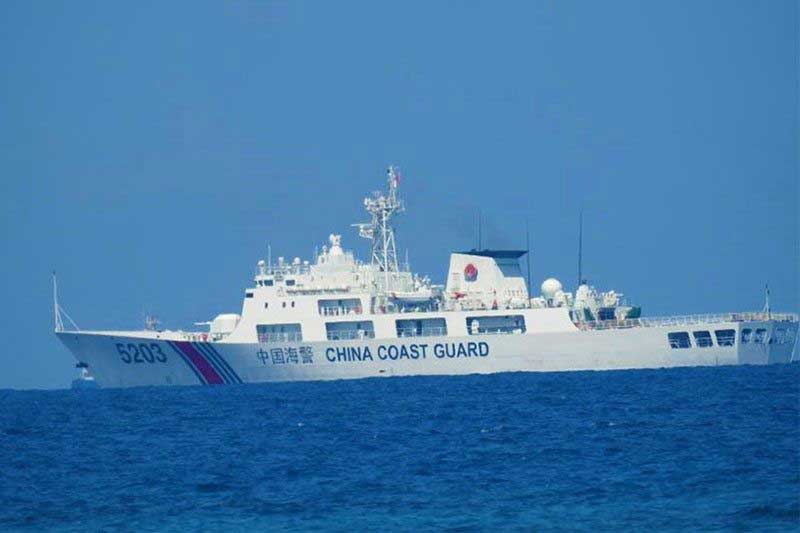Philippine Senate adopts resolution seeking to take China dispute to UN

PHILIPPINE senators on Tuesday adopted a resolution urging the government of President Ferdinand R. Marcos, Jr. to take China’s harassment of Filipino fishermen and coast guard vessels in the South China Sea to the United Nations (UN) General Assembly.
The chamber approved Resolution 718, a consolidation of separate resolutions filed by Senate President Juan Miguel “Migz” F. Zubiri and opposition Senator Ana Theresia Hontiveros-Baraquel, in plenary.
The resolution urges the Department of Foreign Affairs (DFA) to file a resolution before the UN General Assembly calling on China to stop harassing Philippine vessels and violating Philippine rights at sea.
The Senate also called on the agency to bring international attention to China’s harassment of Filipino fishermen in the disputed waterway and its continued violation of the Hague Ruling and the United Nations Convention on the Law of the Sea.
The Marcos government should use international fora to rally multilateral support for the enforcement of the 2016 arbitral ruling that voided China’s claim to more than 80% of the South China Sea, according to the Senate.
It should also raise awareness on the “real situation” and engage like-minded countries in various international organizations, meetings and other fora to call on China to respect the Hague ruling.
The Senate approval ensures that the Philippine government would take the steps to consolidate global support for the Philippines’ historic arbitral award, Ms. Hontiveros-Baraquel said in a statement.
“This bipartisan effort tells the Filipino people that when it comes to matters of national sovereignty, we will never be bullied into submission,” she said. “In the face of relentless China propaganda since last week, we held our ground. In spite of fake news and lies to stop the adoption, we stood firm.”
“The fight against China’s reckless behavior in the West Philippine Sea does not end here,” she said, referring to areas of the sea within the country’s exclusive economic one. “The battle continues.”
Mr. Zubiri said the Senate came up with a “strong consensus” on July 31 after discussions with the West Philippine Sea Task Force, together with DFA and the Armed Forces of the Philippines. “We never watered down the resolution that we filed,” he told reporters after the resolution was approved.
Regardless of political color, regardless of where we come from politically, we are together when it comes to the sovereignty of our country,” he added.
The Philippines should take China’s harassment to the UN General Assembly even if it eventually fails to get enough support, Ephraim B. Cortez, president of the National Union of Peoples’ Lawyers, said in a Facebook Messenger chat.
The international body is a good venue for the Marcos government to show the world the country’s predicament, he said.
He also said the usefulness of the Philippines’ arbitral victory against China in 2016 does not rest on the UN. “Upon its finality, the arbitral award becomes a vested right, and the Philippines is entitled to its enforcement, but of course, its enforcement is still in limbo.”
Ms. Hontiveros last week sponsored her own resolution that called on the government to seek the help of the UN in putting a stop to Chinese harassment of Filipino vessels in the disputed waterway.
The government should have taken its dispute with China to the UN a long time ago, Jeremy I. Gatdula, dean of the University of Asia and the Pacific Institute of Law, said by telephone.
“It’s something that we should be doing, whether or not we get the support,” Mr. Gatdula said. “I don’t see why it would not be helpful to our cause.”
He said the decision to bring the matter to the UN does not rest solely on the Executive branch because foreign policy is not the President’s exclusive prerogative.
“The legislative branch itself has discretion on how to set our foreign policy, which the president should be bound to implement,” Mr. Gatdula said, citing the 1987 Constitution.
“We should essentially demand countries to make a stand, and that the rule of law should be followed,” he added. — Norman P. Aquino and JJC



